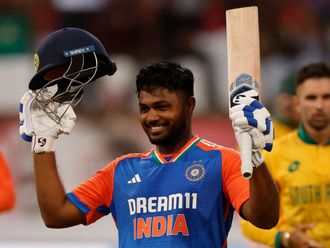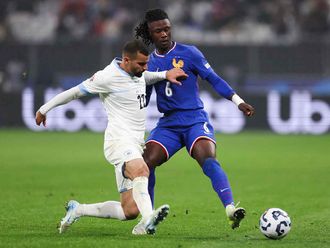The announcement of the Colonel C.K. Nayudu award for lifetime achievement came as a bolt from the blue. When the Board of Control for Cricket in India (BCCI) started the award in memory of India’s first Test captain and first cricketing superstar, the awardees seemed to be in order of seniority of their playing days. So it started with players from the 40s and then 50s and 60s and there again pretty much in order of when the players played. So if there was a player who had made his debut in the series a couple of Tests before the other, then he got it and then the one who played later. When Mohinder Amarnath, who made his Test debut a couple of Tests after Gundappa Vishwanath in 1969 was given the award after ‘Vishy’, I thought that I was next in line. The BCCI, however, went back to Salim Durani, who had made his debut in 1961 and then to Ajit Wadekar, who first played for India in 1966. I thus thought that with some other top players from that era yet to be given the award, I would have to wait for a few more years. I did not mind, of course, what with patience almost being my middle name, and it was good to see Salim and Ajit Wadekar, my skipper, when I made my debuts at Mumbai and India being given the awards. They richly deserved it and I was happy to wait and that’s why when the announcement came through it was a huge surprise, and a pleasant one too.
This in my view is Indian cricket’s highest award and the biggest accolade a cricketer in India can get, and one has just to go through the lists of the winners before to realise what illustrious awardees they have been. It’s been truly humbling.
Col. Nayudu would have been perfectly at home in the cricketing scenario now though of course the disciplinarian that he was he would have frowned at some of the things that come with modern day cricket. He would have especially loved the T20 format which would have suited him. His big hitting even in the days of super-light bats was awesome to say the least, and his medium-pace bowling would have been pretty useful too.
Let us come back to the present, though, and the loss in the Champions League of all four IPL teams could well be a blessing in disguise. This has allowed some players to get a much-needed break and rest up some niggles that will invariably be part of any sport. It also gives them the chance to play some four-day cricket and get in tune mentally and physically with that format of cricket that they will play against England. Sadly England have lost the number one ranking to South Africa, else it would have been a great motivating factor for the Indians to try and dethrone them like England did last year. Sure, India wouldn’t climb to the number one spot, but still it would have been a feel good glow. England have barely won a Test in India after their triumph in 1984-85, and some of their players are referring to this tour as the final frontier. Amazingly the situation is eerily similar to India’s tour of England and Australia last year. Both England and Australia were vulnerable and there for the taking, but India messed it up and after the first Test of both the series just did not look as if they would win a day leave alone five days of a Test match.
India today are in the same vulnerable position that England and particularly Australia were in 2011. Two of their stalwarts, Rahul Dravid and VVS Laxman, have retired and ‘The master’, Sachin Tendulkar, did not score too many runs against New Zealand in August. That could well have been because it was too early in the Indian season and against England he has always done well. Still, with the openers too not quite in form, the batting is looking wobbly. Virat Kohli is the one man in supreme form and hungry for runs and the batting will depend on him at least at the start of the series. Cheteshwar Pujara is settling down as a number three and the number six batting spot is up for grabs. The settled air that was there at the beginning of 2011 is not there and that is why this is a great chance for England.
The Indian new ball also is not too encouraging. Zaheer Khan cannot be discounted as with age he has added variety to his bowling, but Umesh Yadav is still raw and Ishant’s fitness not yet fully tested. The spinners though could be the key. Ravichandran
Ashwin perhaps overdid the ‘flicker’ in the ICC World Twenty20 and the Champions League, but is a quick learner and Pragyan
Ojha is very consistent. On pitches where there is some turn, they could prove tricky customers.
With Kevin Pietersen back in their squad, the England team is much stronger and Ian Bell is too good a player to fail again. It will depend on the starts they get and here Alastair Cook will be the steadying factor. He has a good record in India and, if he can bat like he did in his debut series, the final frontier could just be a small hurdle for England.








